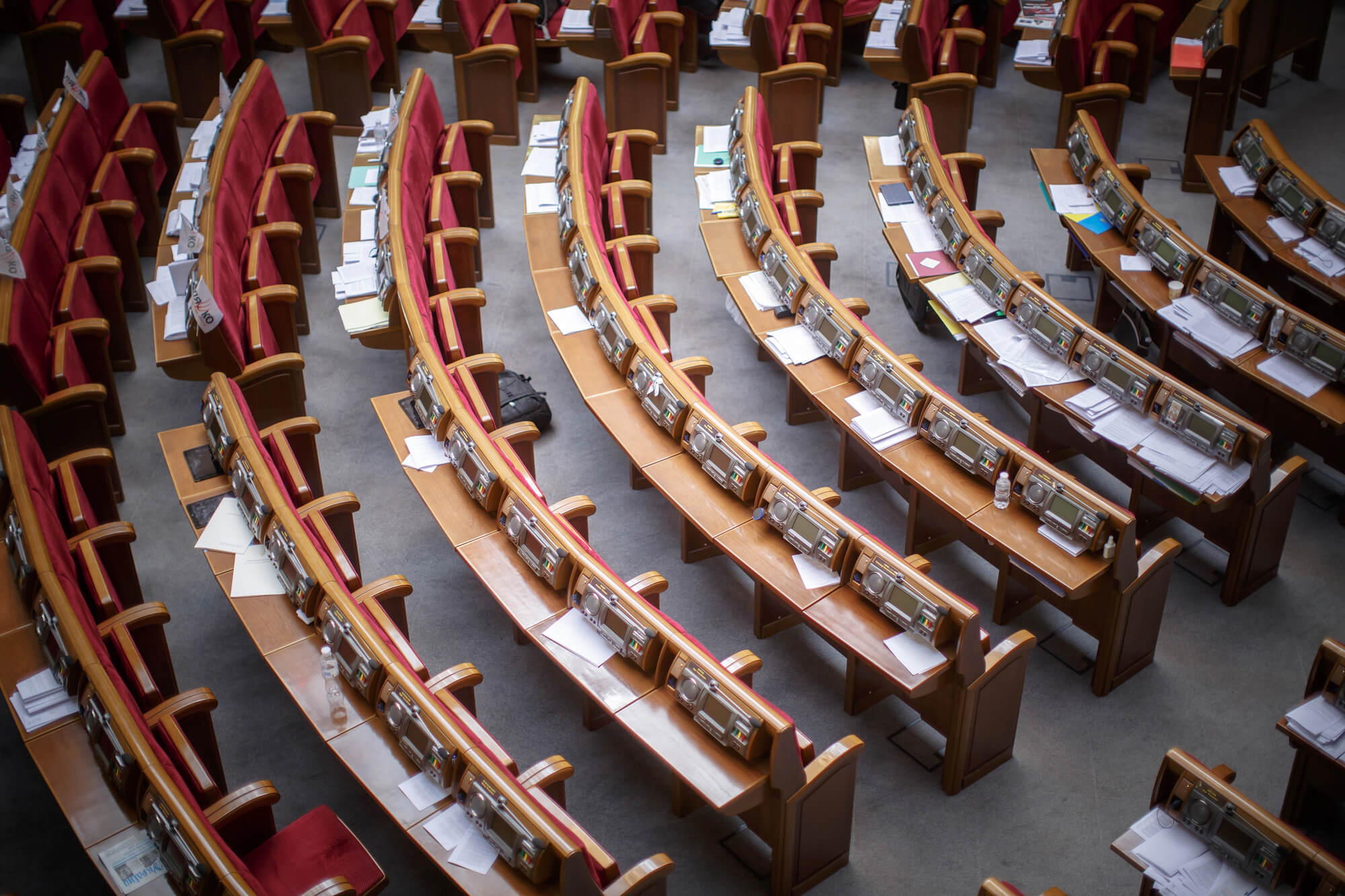The typical view in emerging economies is that competition authorities are government bodies whose responsibility it is to prevent monopolies from harming the public. In practice, it creates a lot of difficulties in cases when neither the government nor the public are able to form expectations based on the correct understanding of the objectives of competition policy and the restrictions it faces. People expect that the competition authority is able to protect them from higher prices immediately. And not just by eliminating limited competition, but, also by distributing fines for any price increase even if this price increase has nothing to do with lack of competition.
Since early 2014, the position of chair of Ukraine’s Antimonopoly Committee has been vacant. What kind of person should Ukraine be looking for to fill this position and start the difficult task of designing a proper competition policy. Since the competition authorities, and their heads, of many transition countries face similar problems, Ukraine can probably learn from the experience of other post-communist countries.
The main problem in transition countries is that neither the general public nor the governments properly understand what competition policy (or antitrust legislation enforcement) is, why it is useful (or even necessary), what they should expect from competition policy, and how to measure the effects of competition policy and antitrust enforcement. The typical view in emerging economies is that competition authorities are government bodies whose responsibility it is to prevent monopolies from harming the public. In itself there is nothing bad with this idea. However, in practice, it creates a lot of difficulties in cases when neither the government nor the public are able to form expectations based on the correct understanding of the objectives of competition policy and the restrictions it faces. People expect that the competition authority is able to protect them from higher prices immediately. And not just by eliminating limited competition, but, also by distributing fines for any price increase even if this price increase has nothing to do with lack of competition. It is difficult to imagine that the competition authority of a country in the European Union, or the European Commission’s Directorate General for Competition (DG Comp), or US Department of Justice, or US Federal Trade Commission, is blamed for inflation and at the same time is blamed for enforcing competition policy to harshly. The Russian competition authority, the Federal Antitrust Service, however, is often blamed for both simultaneously, and very often by the same people. It is also difficult to imagine that competition agency in a country in the European Union receives twenty thousands complaints annually, and every filer expects to receive immediate help in resolving his or her problems. Antitrust and competition authorities in the countries with a developed tradition of competition policy similarly have a hard time imagining how high the level of dissatisfaction is with competition policies in the emerging market economies.
There are important differences between emerging and developed market economy for competition policy and antitrust enforcement. In most developed countries the rule of law is respected. In the emerging economy legal rules generally are respected if and only if people see direct positive results from their application. And unfortunately, in many post-socialist economies people have a hard time to imagine what kind of benefits they could expect from competition policies. Second, most people in countries with a long legal tradition expect that outcomes of law enforcement may appear in the long-run, and even in the long-run they could be intangible. In contrast, people in emerging market economies expect fast and tangible results.
This presents a danger for competition authorities in the emerging economy to get into a vicious cycle. Trying to obtain fast and tangible results, they implement policies that can deliver those results. However these policies are often far from what can be called ‘conventional’ competition policies, and they often have unexpected side effects results.
It is hard to imagine a more important part of antitrust enforcement than the detection and punishment of cartels in order to prevent collusion agreements, which normally result in huge price increase (according to John Connor[1], average overcharge of a cartel is about 23% ). Every antitrust law in the world includes provisions against price-fixing. Countries with emerging market economies are not exceptions in this. However the practice of the deterrence of collusion in most of them seems unsatisfactory. Looking at different post-communist countries with the national-specific antitrust enforcement (for instance, Kazakhstan, Russia and Ukraine) we find different stories that illustrate the difficulties with the identification of what illegal collusion is, and of how it should be punished. In all these countries not only ‘anti-competitive agreements’ (collusion with hard evidence of price-fixing) but also ‘concerted practices’ (coordination that allows to achieve the same outcome in terms of prices but without the evidence of explicit agreement) are prohibited. The Russian legislator even introduced criminal liability for concerted practice (not in force since 2011). Provisions on concerted practice were borrowed from European competition law. However the effects of introducing European-style provisions revealed to be far from the expected. Because of the broad definition of illegal coordination (not only agreements but also parallel pricing of sellers) the public expects the competition authority to intervene whenever it observes a simultaneous price increase. Exactly because of these expectations authorities in all three countries opened a number of investigations against retail sellers of consumer goods such as buckwheat (in Russia) or eggs (in Kazakhstan). Why retail market? Just because public and government ask for a fast solution of the visible problems and do not want to hear boring stories that price increase is not always a result of parallel pricing, that parallel pricing is not always an outcome of coordination and cannot be considered as illegal, that the structure of the retail markets does not facilitate sustainable coordination etc. At the next step, when it is revealed that the competition authorities made a lot of mistake during the investigation, the public and government insist on liberalization of antitrust provisions in order to avoid wrongful convictions. As an answer, Ukraine introduced so-called ‘rule of reason’ regime for any coordination (including explicit agreements on price-fixing), including the opportunity to make any type of agreements legal by notification. Russia several time decreased the standards of fine for violation of provisions on cartel. For now, the result is far from being satisfactory: in spite of the presence of provisions against collusion in the competition law, and a large number of investigation there is no evidence that participants of large international cartels were punished in any of these countries. Of course there are many explanations for this, but the expectations of the public and the government for competition policy to solve the problem of high prices in many markets very quickly has been a contributing factor.
This story may seem funny for the observers from countries with a strong tradition of competition policy. However it shows the danger that competition authority in emerging market economies faces: trying to achieve fast positive results in order to obtain public support they often have to invest a lot in activities, which are not focused on protecting competition and improve competition policy.
There are many examples of the trade-off between fast immediate policy outcomes and long-term environment being resolved in favor of the tactical purposes. However in every such case it makes competition agency a target for critique from both sides – from those asking for more tangible results and those hoping for modern competition policy.
It is not easy to resolve this trade-off in a proper way. It is much more difficult in the economy suffering from economic crisis, with complex structural imbalances and incomplete liberalization in the infrastructure, including power and railways. This task becomes even more difficult, if we take into account that in most emerging economies competition agencies are responsible not only for antitrust enforcement in its ‘classic’ sense but also for a number of other policies, including deregulation of the so-called infrastructure industries and the improvement of the business climate. What is the better use of scarce resources – to concentrate on deregulation reforms, on improving business climate or on the development of modern antitrust? In another words, what kind of competition policy would be more effective in a time of a deep economic crisis – a pro-active policy (including changing rules in the industries, entry conditions and introducing new markets), or a protective policy (aiming at prevention of restrictions of competition)? Many people would say that the first path is able to ensure more important and sustainable results. However it almost inevitably means that the improvement of antitrust provisions and procedures is considered as a secondary priority. Other people would suggest that crisis is a time to forget about competition policy completely and concentrate on industry-specific state aid measures.
To pass between this Scylla and Charybdis, the competition authority should rely on some basic principles, whatever course it take. In this context individual traits and professional experience of the head will be very important. In many post-socialist countries it is easier for experts with a background in law (vs for instance with experience in economic policy) to follow the chosen course without serious deviations. This phenomenon has no rational explanation, except, probably, the internal stability of any legal system vs economic policy under transition. Expertise in law allows to rely at least on the respect to the legal rules, which should be implemented anyway. Expertise in transition economic policy often implies the desire for a quick and evident outcomes, which are difficult – if even possible – to achieve by protection of competition alone.
One more source of success for competition agency in emerging countries may be the involvement of the competition authority in the international network of enforcers, policy-makers and businessmen, respected at home. Not only competition policy organizations – like the International Competition Network – are important, but also other formal and especially informal networks which facilitate exchange of ideas and placement in international communities. International networks provide not only experience and ideas, but also a flavor of political and even psychological support from abroad. In the context when neither public nor domestic experts or government really appreciate long-term objectives of competition protection, it could be much easier to obtain support from the colleagues in the countries where long-term effects are visible, and competition rules are widely accepted.
Concluding, as far as the tasks are concerned, the ideal head of competition authority in emerging economy should, first, choose proper priorities of competition policy, second, propose goals understandable to public and at the same time compatible with strategic objective to develop modern competition policy, third, obtain the most scarce resource in the emerging economy where there is little respect to legal rules – trust and freedom of action from the short-term oriented politicians. An Important task is to explain to the public why the prevention of restrictions of competition – price-fixing, and business practice that exclusions competitors from the market – are unlikely to bring immediate positive results in terms of lower prices, higher productivity, and higher GDP.
In order to accomplish the mission, (s)he inevitably should be a good specialist, with extensive experience in the field (legal expertise is preferable), respected both at home and by the international community. A condition sine qua non is the ability to obtain de facto independence once appointed.
Notes
[1] Connor, John M., Price Fixing Overcharges: Revised 2nd Edition (April 27, 2010). Available at SSRN




